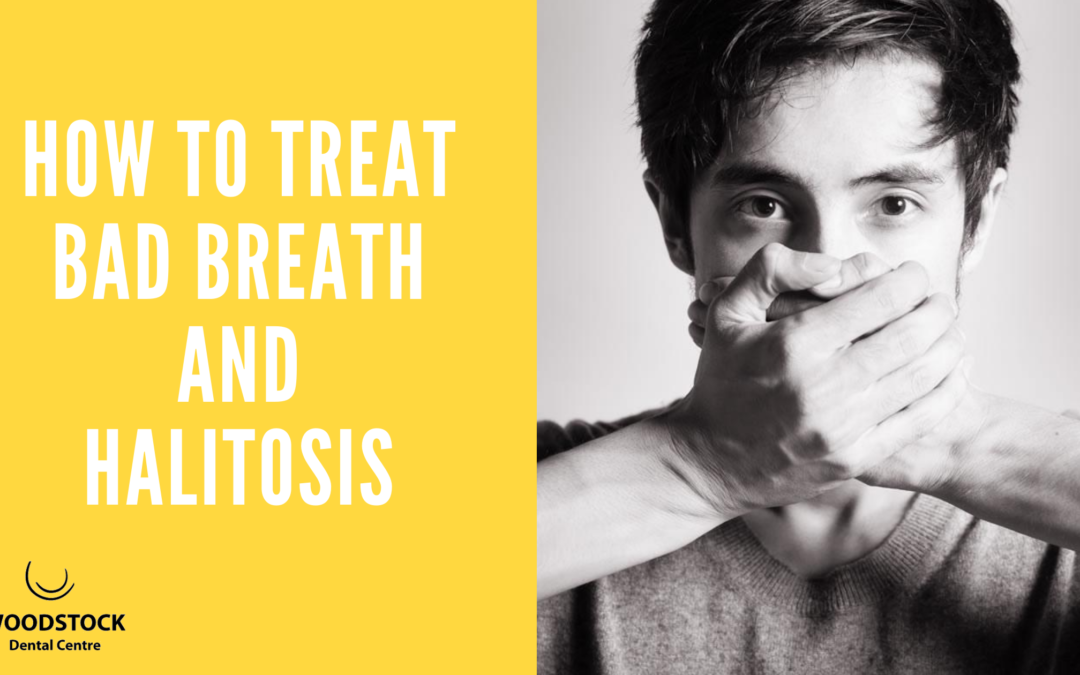Bad breath, medically called halitosis, can result from poor dental health habits and may also be a sign of other health problems. Are you always concerned that your mouth doesn’t smell as fresh as it should? Do you feel embarrassed? Halitosis can really take a toll on your confidence while talking to people.
What’s the Difference Between Bad Breath and Halitosis?
Not a lot of people know the difference between bad breath and halitosis. While we use these terms often interchangeably, there are some technical differences in their correct meaning.
Bad breath is generally referred to as an unpleasant odor that is present in the breath, regardless of the frequency of its occurrence or the root cause. For example, after having a meal with garlic and onions, you may experience lingering odors in your mouth that could be described as bad breath.
Halitosis is an ongoing problem that causes an unpleasant odor in the breath and is not always an easily identifiable or obvious cause. In most cases, halitosis has an underlying condition that produces the symptom of bad breath. In simple terms, halitosis can be categorized as bad breath, but not every bad breath case can be categorized as halitosis.
What are the causes of bad breath?
Bad breath is more severe in the early morning after waking from a night of sleep. During that period, salivary flow is usually at its lowest, and people who breathe through the mouth during their sleep generally have dry mouth. The morning breath we complain about often is very common, so it should not be a concern to some of us. If you feel that your breath smells bad during the day, then that could be troublesome, as it can imply infection and inflammation in your mouth or other diseases.
Constant bad breath may also be related to other dental health problems such as tooth decay, plaque and tartar build-up, gum disease, infections, injuries, or hidden wounds in the mouth. Bad breath is also a symptom of indigestion or acid reflux. It can also indicate other health conditions and diseases that can impact the metabolism of the body leading to bad odors in the breath.
There are some medications that can leave you with a dry mouth as a side effect, which is one of the most common causes of bad breath. When your mouth doesn’t produce an adequate amount of saliva to help wash away bacteria and food particles, they can build up, and the result is bad breath.
Bad breath and Halitosis Treatment
If the cause of your bad breath is not the result of a strong-flavored meal or a lapse in oral hygiene habits, it’s time to schedule an appointment with your local dentist. The dentist will perform a thorough oral examination and determine what is causing the bad breath, and then make a recommendation on how best to treat your condition.
You will be provided some tips on brushing techniques, flossing methods, and oral rinse that can help prevent your bad breath. Full hygiene and complete cleaning session of your teeth can drastically reduce the amount of odor-causing bacteria, plaque, and tartar on your teeth and in your mouth.
If your bad breath is the result of a dental health concern such as gum disease, infection, or other condition, your dentist will treat the condition appropriately. Getting these conditions treated will improve your bad breath, halitosis, and overall health.
For bad breath caused by medications, your dentist will suggest alternatives or refer you back to your doctor to obtain other options for medication that are less likely to cause dry mouth.
If you or someone you know is constantly dealing with bad breath, it’s important to know that there are options available to help treat the condition and minimize the effects. In a lot of cases, bad breath is entirely preventable and can be easily remedied, so don’t hesitate to speak with your dentist and have them provide recommendations for your situation.
If you need advice on what to do about chronic bad breath or halitosis, call us on 519-537-6666 or book an appointment with us today.

